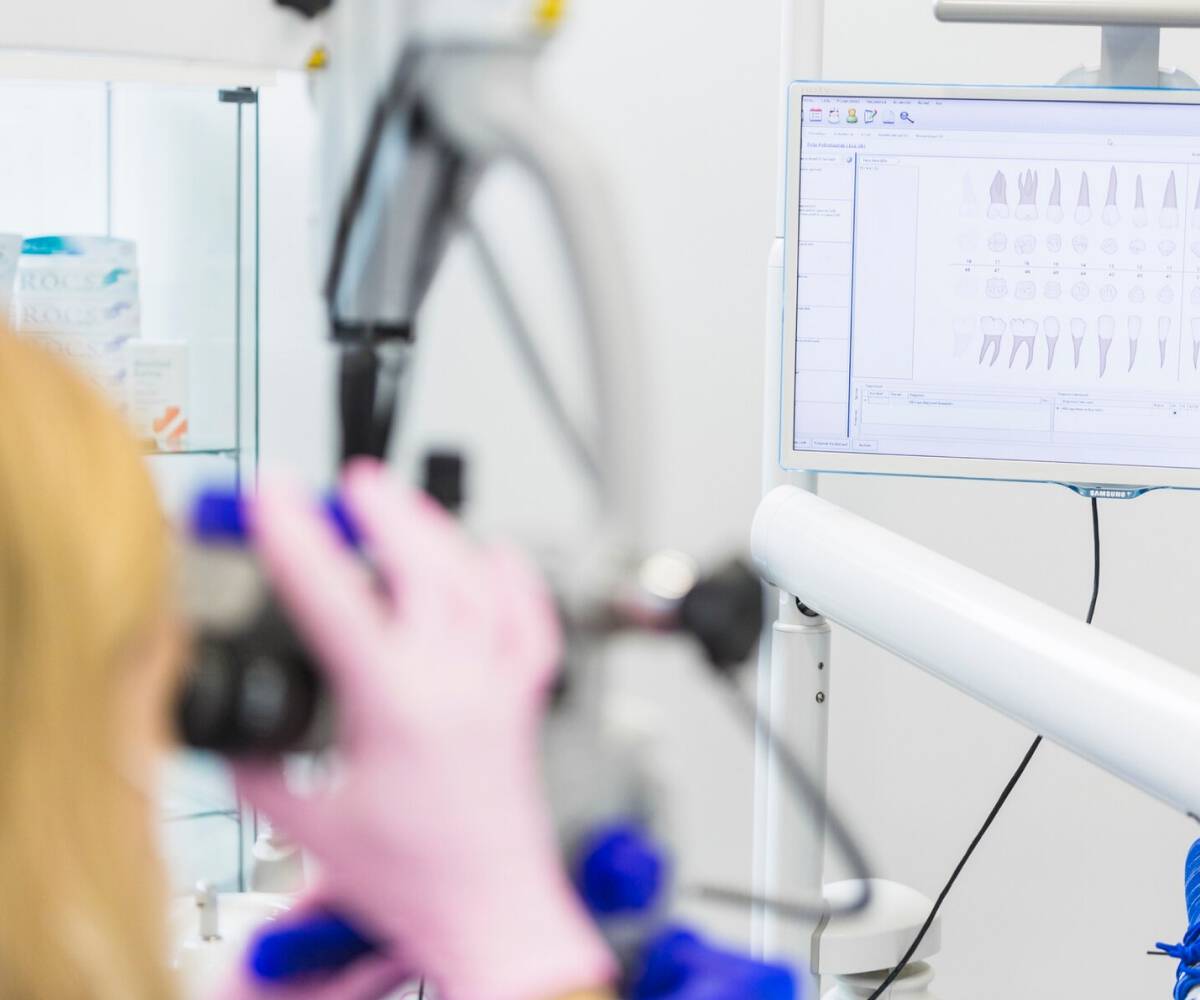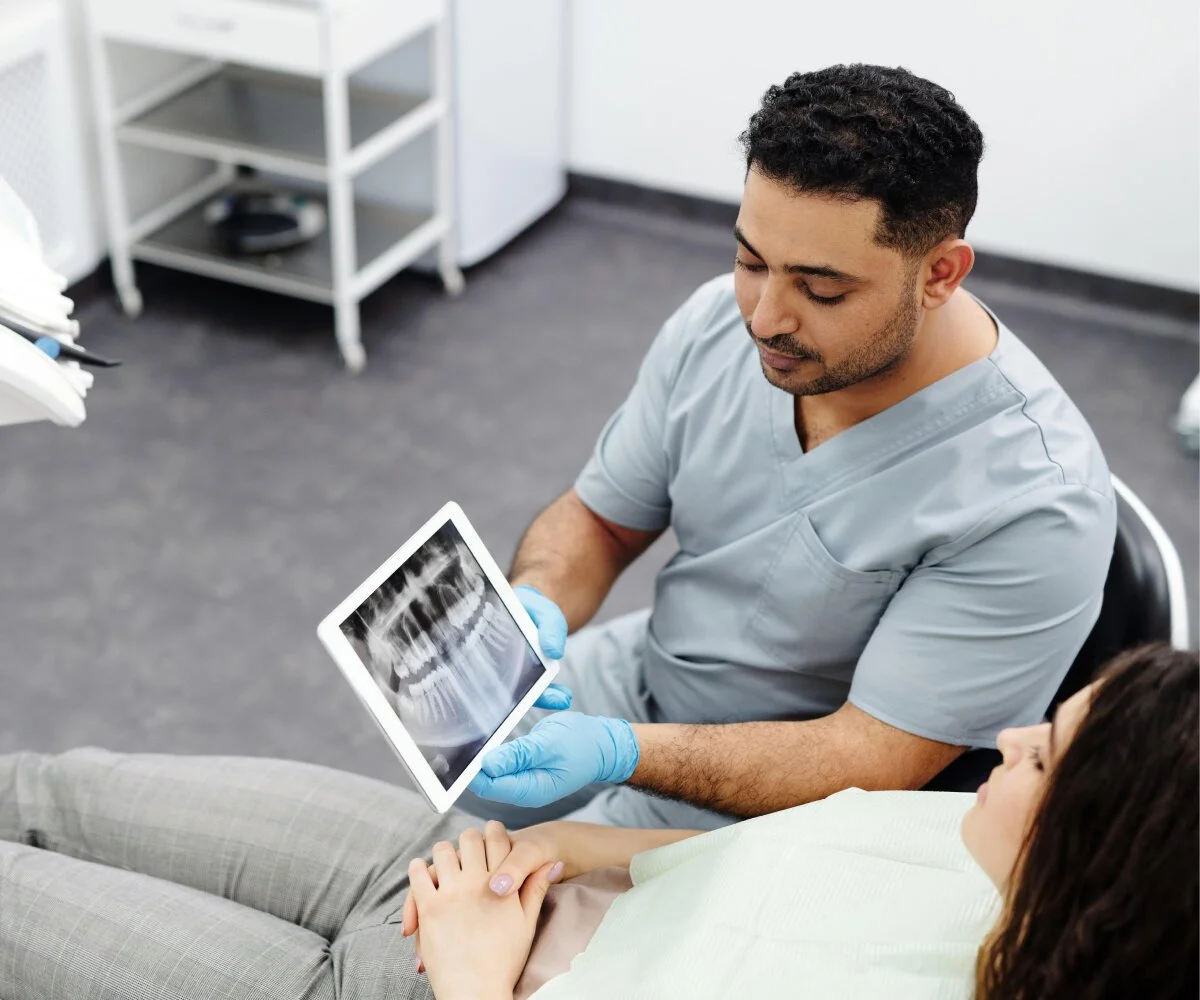AI in Dental Education
AI in dental education has transformed traditional learning methods, offering dental students and professionals interactive, personalized, and efficient tools to enhance their skills. By integrating artificial intelligence into dental education, schools and institutions are reshaping how knowledge is delivered and retained. The ability of AI to adapt content to individual learning styles, simulate real-life scenarios, and offer immediate feedback is significantly advancing the field. This article delves into the various applications of AI in dental education, addressing how generative AI, core curriculum tools, and intelligent assessment systems are revolutionizing the learning environment.
What Is Generative AI in Dental Education?
Generative AI, a branch of artificial intelligence, plays a pivotal role in dental education by creating realistic, interactive simulations and content tailored to individual learning needs. Unlike traditional tools, generative AI in dental education uses deep learning models to generate customized scenarios that help students gain hands-on experience. Through realistic simulations, dental students can practice complex procedures and decision-making skills without the risk of real-life errors, making generative AI an invaluable tool in practical learning environments.
Generative AI also facilitates content creation by analyzing a vast amount of dental research and case studies to produce relevant educational material. This technology enables AI in dental education to go beyond theoretical knowledge, giving students insights into rare or complex cases they may not encounter during their training. By implementing generative AI, dental institutions can ensure that students are not only well-versed in standard practices but also capable of thinking critically and handling unique clinical situations.
Furthermore, the use of generative AI encourages collaborative learning. Students can engage with AI-driven virtual patients, adapting their approaches based on real-time AI feedback. This level of interactivity deepens understanding and enhances skills, preparing students for actual dental practice with greater confidence and competence.
How Is AI Used in Dental Education?
AI in dental education offers numerous applications that benefit both students and educators. Primarily, AI assists in adapting educational materials to each student’s learning pace and style, which enhances comprehension and retention. For example, AI-powered platforms can adjust the difficulty of quizzes and exercises based on a student’s progress, ensuring a personalized and effective learning experience.
Moreover, dental schools are increasingly using AI-driven simulations and virtual reality tools to supplement clinical training. These tools allow students to practice procedures in a controlled environment where they can repeat tasks until they achieve mastery. This hands-on, AI-integrated learning in dental education fosters not only technical skills but also builds the confidence needed for real-world patient care. Faculty members also benefit from AI through data-driven insights that highlight each student’s strengths and areas for improvement, allowing for tailored guidance and support.Impact of Artificial Intelligence in Dental Education
The impact of artificial intelligence in dental education is reshaping how dental professionals are trained, enhancing both the quality and efficiency of learning. By utilizing AI-driven adaptive learning systems, dental schools can now provide students with a tailored curriculum that adjusts to individual learning speeds and styles. This approach ensures that each student masters foundational concepts before advancing to more complex procedures, which is crucial in a field as precise as dentistry.
Additionally, AI applications in dental education have enabled the development of advanced training tools, including real-time performance tracking and instant feedback mechanisms. AI algorithms can analyze each student’s performance, identifying strengths and areas requiring further practice. With this data-driven approach, educators can make informed decisions about curriculum adjustments, ensuring that each student meets the required competencies. This personalized feedback loop not only enhances student success but also contributes to raising the overall standards of the dental profession..jpeg)
Artificial Intelligence in Setting Standards for Dental Professionals
Artificial intelligence in setting standards for dental professionals is a game changer, as AI-driven systems allow dental institutions to uphold rigorous training and performance benchmarks. By analyzing a vast amount of clinical data, AI can identify best practices, successful treatment methodologies, and potential areas for improvement, helping to standardize quality education across the board.
The use of AI in setting standards also supports consistency in dental education outcomes. For instance, AI can assess large sets of clinical procedures and educational data to develop evidence-based guidelines that align with industry standards. These AI-derived guidelines help educators establish clear, objective learning goals for students, ensuring that all future professionals meet the same high-quality standards. As a result, the integration of AI not only enhances the educational process but also contributes to a safer, more efficient dental industry.
Integration of AI Tools in the Core Education Curriculum
The integration of AI tools in the core education curriculum enables dental schools to provide students with an immersive learning experience that goes beyond textbooks. AI-powered simulations and virtual reality tools are now a staple in many dental programs, giving students a realistic yet risk-free platform to practice intricate procedures. This practical exposure helps students gain the confidence and skill set they need to excel in clinical settings.
Additionally, AI tools integrated into the core curriculum offer valuable analytical insights for educators, such as tracking student performance in real-time and identifying common challenges within the cohort. By addressing these challenges early, instructors can ensure that the learning experience remains effective and focused. As AI continues to evolve, its role in the curriculum will expand, allowing for even more innovative teaching techniques and enhancing the future of dental education.
Challenges of Implementing AI in Dental School Curriculum
While integrating AI in dental education brings numerous benefits, it also presents significant challenges that institutions must address to ensure a successful transition. One primary challenge is faculty training; many instructors may lack the technical skills needed to effectively utilize AI tools in their teaching methods. To overcome this, dental schools must invest in continuous training programs that empower educators to leverage AI in ways that maximize its potential.
Another critical concern is data privacy, as AI in dental education often involves handling sensitive student and patient information. Ensuring that these data are stored and processed securely is essential to maintain trust and comply with ethical standards. Lastly, the infrastructure requirements for AI are substantial, and many institutions may need to make considerable investments in technology and software to fully support AI-powered learning environments. Addressing these challenges head-on will be crucial to harnessing the full potential of AI in dental education.
CranioCatch’s Artificial Intelligence-Powered Education Platform
At CranioCatch, our artificial intelligence-powered education platform revolutionizes dental training by offering a comprehensive suite of tools tailored to meet the needs of dental students and educators. With our platform, institutions can leverage AI-driven simulations, adaptive learning modules, and real-time performance tracking to enhance the learning experience. These tools allow students to practice procedures in a risk-free environment, receiving immediate feedback and gaining confidence in their skills.
Our platform also supports educators by providing data-driven insights into student progress and performance, enabling more personalized guidance. Whether it’s through advanced treatment planning simulations or instant access to vast dental knowledge databases, CranioCatch’s platform is designed to make learning in dental education more efficient and effective. For more information on our AI solutions and how they can transform your educational programs, please visitCranioCatch EDU.
Future of Dental Education with AI
The future of dental education with AI holds promising advancements that are set to redefine how dental professionals are trained. As AI technology progresses, tools such as machine learning algorithms, virtual reality, and predictive analytics will play a crucial role in transforming traditional dental training into a more interactive and effective experience. These tools will provide students with personalized learning pathways, adapting to their strengths and identifying areas where they need more practice.
Moreover, AI-driven platforms will continue to support lifelong learning for dental professionals by offering continuous updates on the latest research and techniques. With this technology, dental education can become a lifelong process, helping professionals keep up with the ever-evolving landscape of dentistry. As these tools become more sophisticated, AI in dental education is expected to offer increasingly accurate, data-driven insights that enhance both clinical competencies and patient care outcomes.
FAQ About AI in Dental Education
What is AI’s role in dental education?
AI plays a transformative role in dental education by providing tools that enhance personalized learning, simulate clinical procedures, and offer real-time feedback. It allows students to practice in a risk-free environment, ultimately improving their understanding and clinical skills.
How does generative AI support dental education?
Generative AI supports dental education by creating realistic simulations and interactive content that allow students to practice complex procedures. These tools mimic real-life patient scenarios, helping students gain valuable hands-on experience and improve their problem-solving skills.
How does AI improve student performance in dental education?
AI improves student performance in dental education by offering adaptive learning experiences tailored to individual needs. Through personalized assessments and feedback, AI helps students identify areas for improvement, ensuring a comprehensive understanding of essential skills.
Related Links: https://www.craniocatch.com/en/blogs/ai-dental-advantage





 Contact Us
Contact Us

